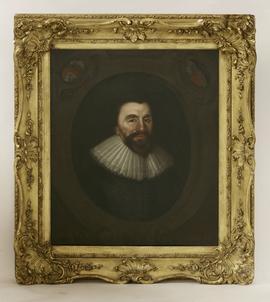- GB-2014-WSA-00678
- Person
- 1737-1794
GIBBON, EDWARD, only son of Edward Gibbon (qv), and his first wife; b. 27 Apr 1737; adm. Jan 1747/8 (Porten's); left Aug 1750, on account of ill-health; Magdalen Coll. Oxford, adm. fellow commoner 3 Apr 1752; received into Roman Catholic church 8 Jun 1752, but returned to Protestantism at Lausanne, Switzerland, in 1753; became attached to Susanne Curchod (afterwards Mme Necker), but at his father’s wish the engagement was broken off; adm. to Academy, Lausanne 1 Dec 1756; officer in Hampshire Militia 12 Jun 1759-70; author, Essai sur l’Etude de la Litterature, 1761; met John Baker Holroyd (afterwards Lord Sheffield) at Lausanne 1764; in Italy 1764-5; the idea of writing on the decline and fall of the Roman Empire first occurred to him when in Rome on 15 Oct 1764; author, Mémoires Littéraires de la Grande Bretagne, 1767-8, jointly with his Swiss friend Deyverdun; author, Critical Observations on the Sixth Book of the Aeneid, 1770, attacking Warburton; settled in London 1772; elected to The Club 1774; MP Liskeard 1774-80, Lymington 25 Jun 1781-4; a Commissioner for Trade and Foreign Plantations 6 Jul 1779 - Jun 1782; Professor of Ancient History, Royal Academy, from 1787; FSA 20 Nov 1788, FRS 27 Nov 1788; author, The Decline and Fall of the Roman Empire, 1776-87, 4 vols.; defended the chapters on Christianity in a Vindication, 1779; retired to Lausanne 1783; his Miscellaneous Works, edited by his friend Lord Sheffield, and including his Memoirs of My Life and Writings, were published in 1796; d. unm. 16 Jan 1794. DNB.

